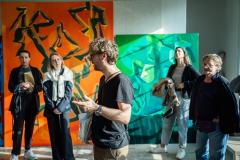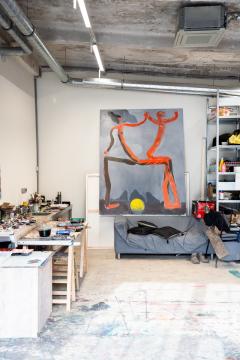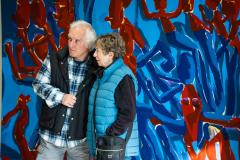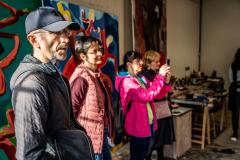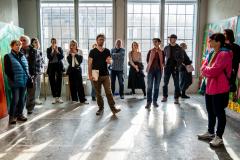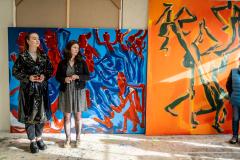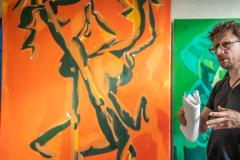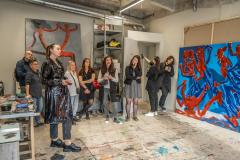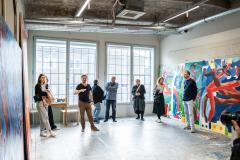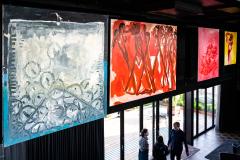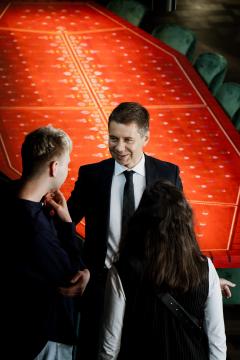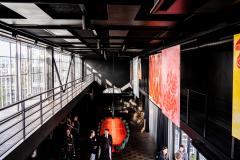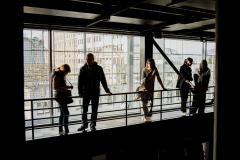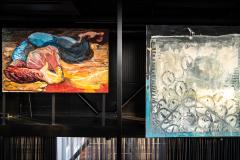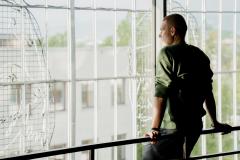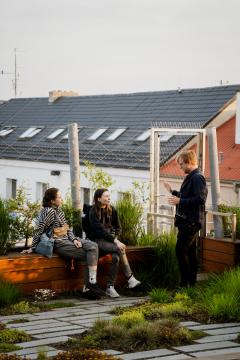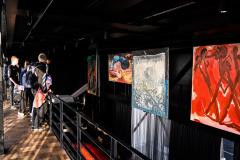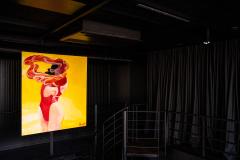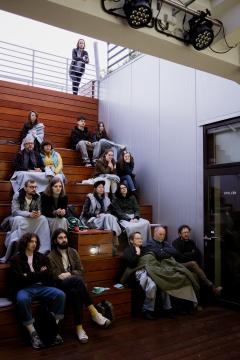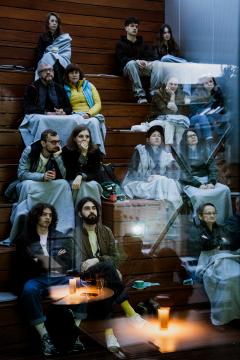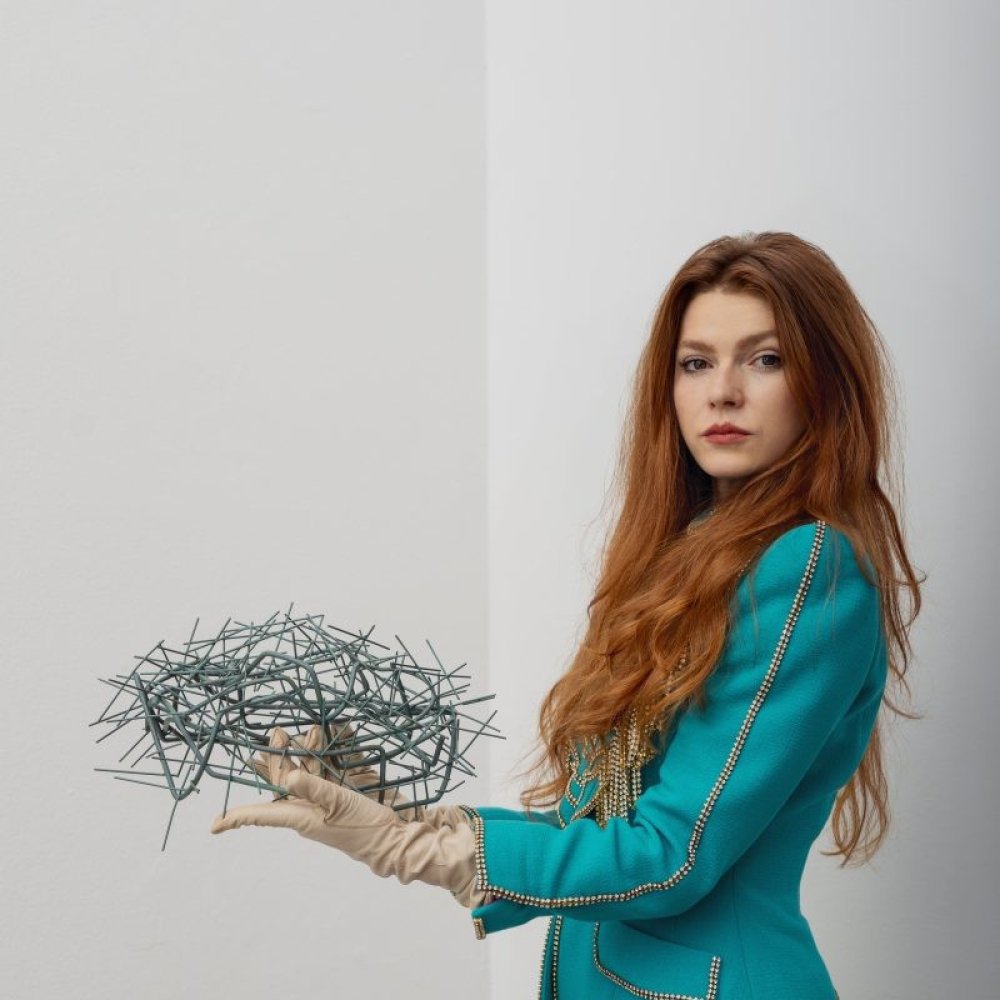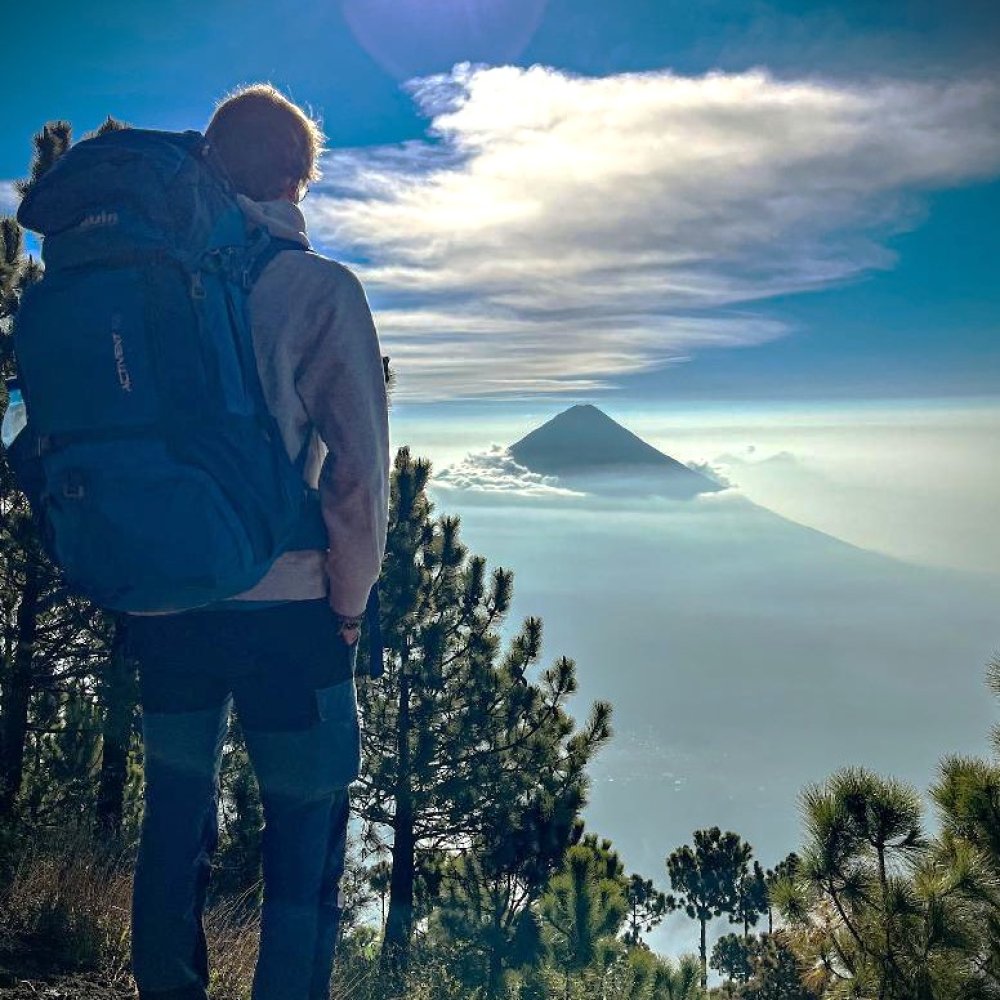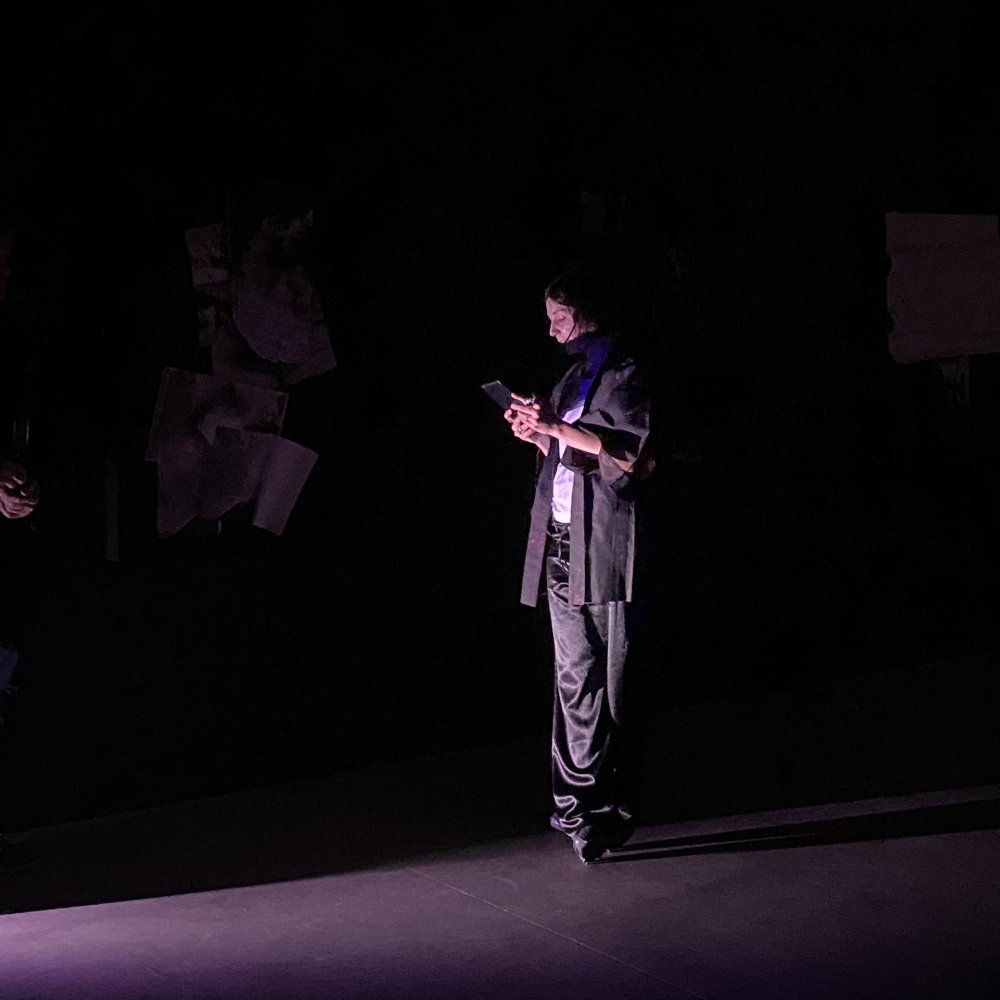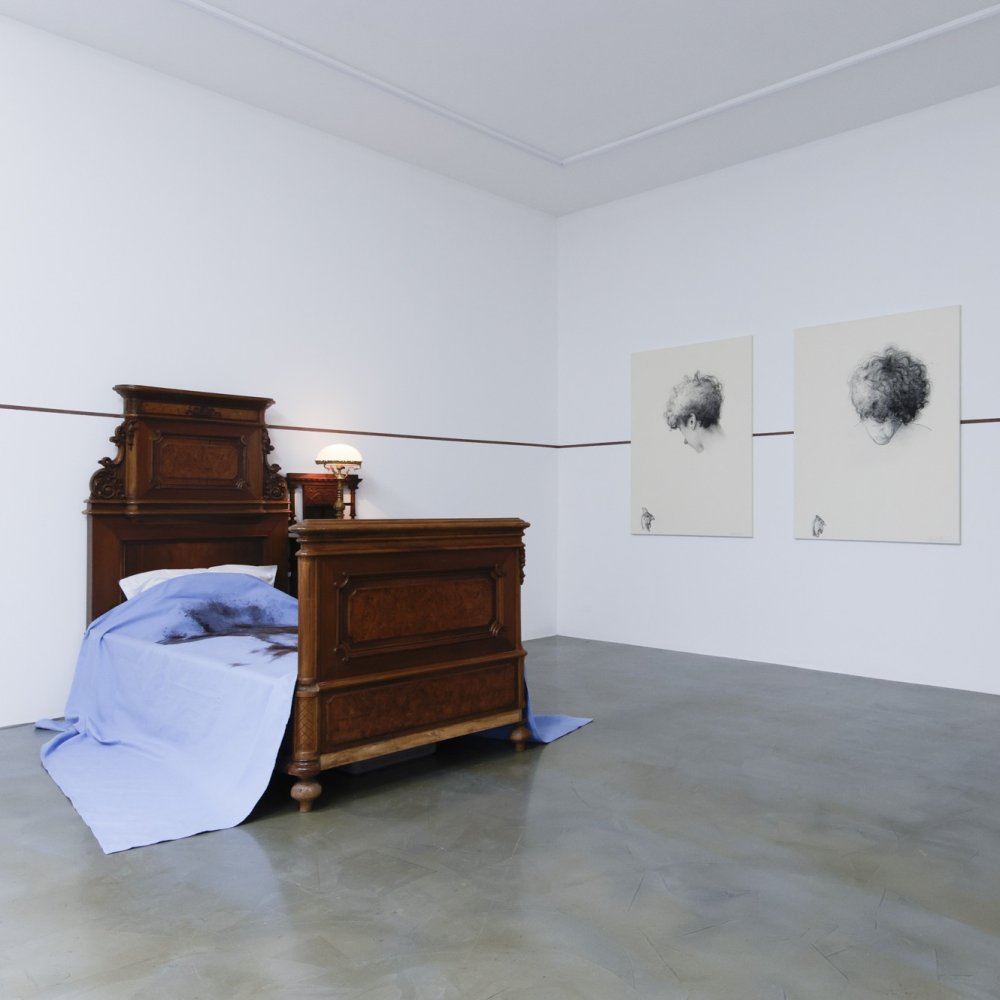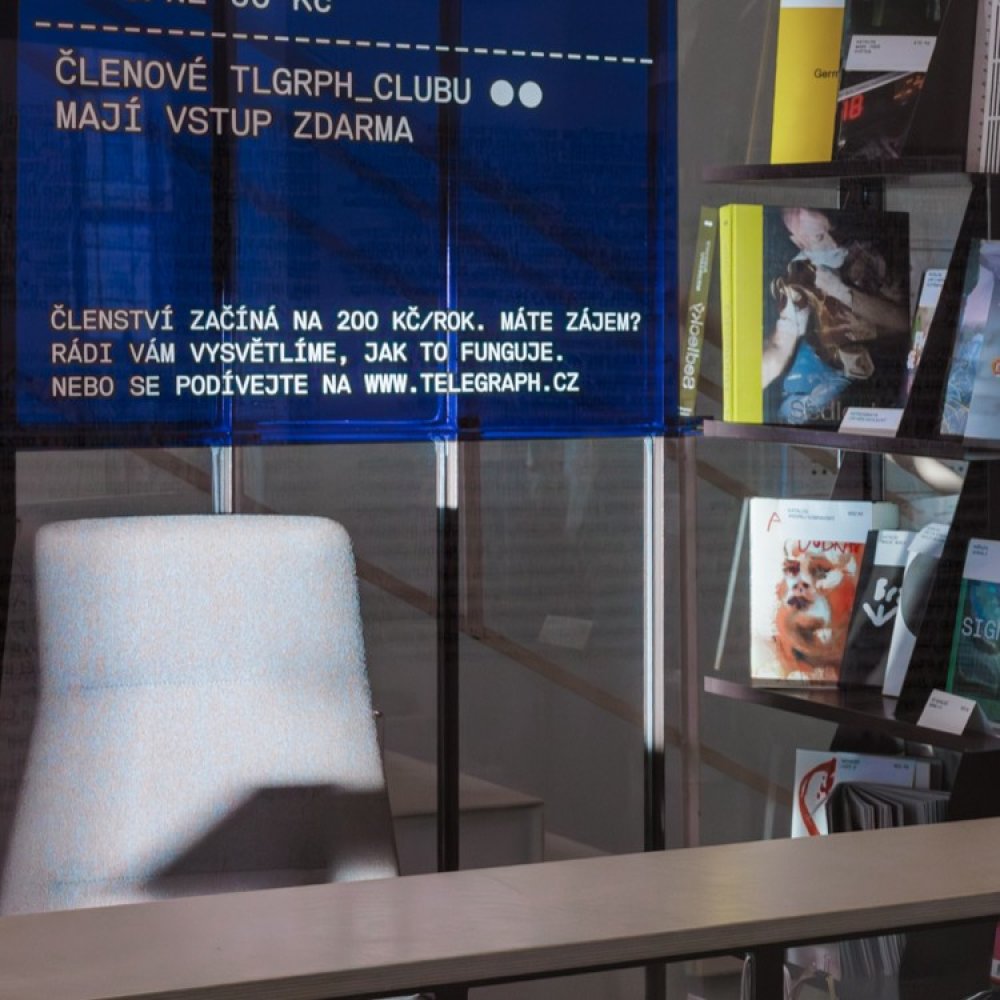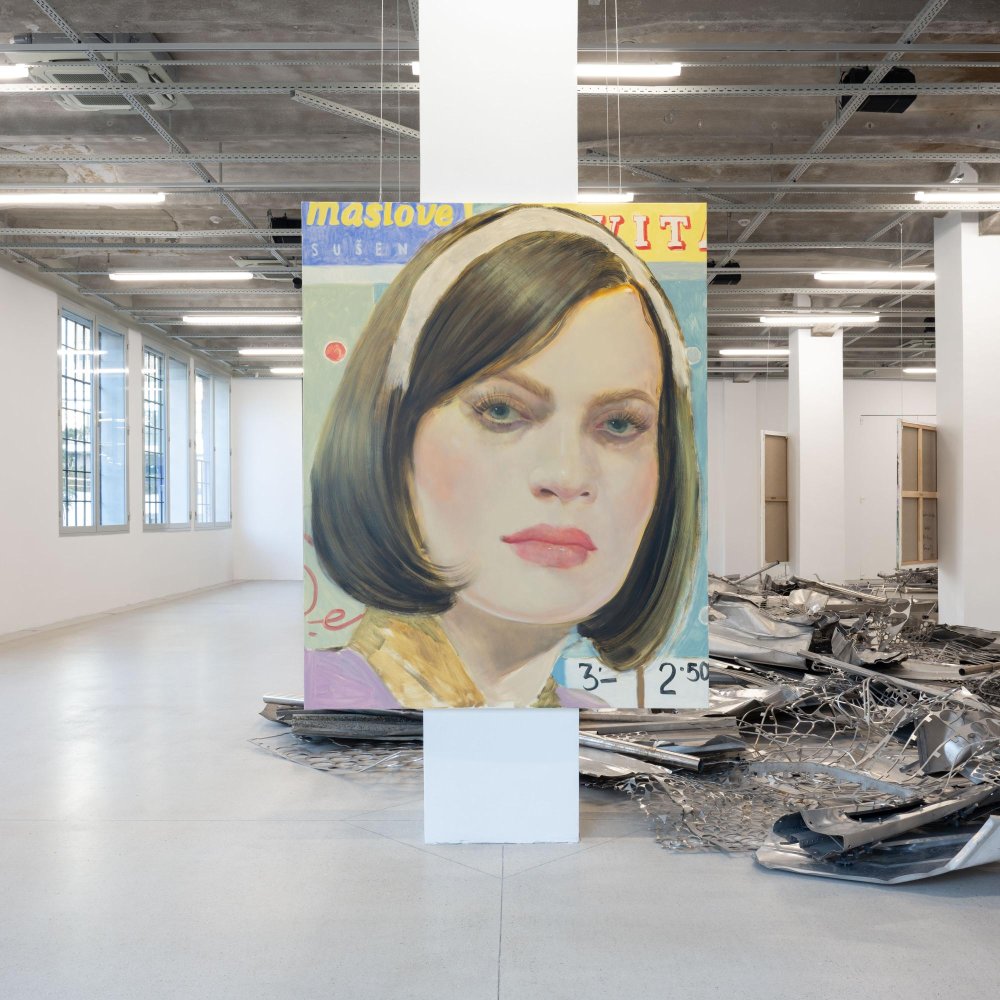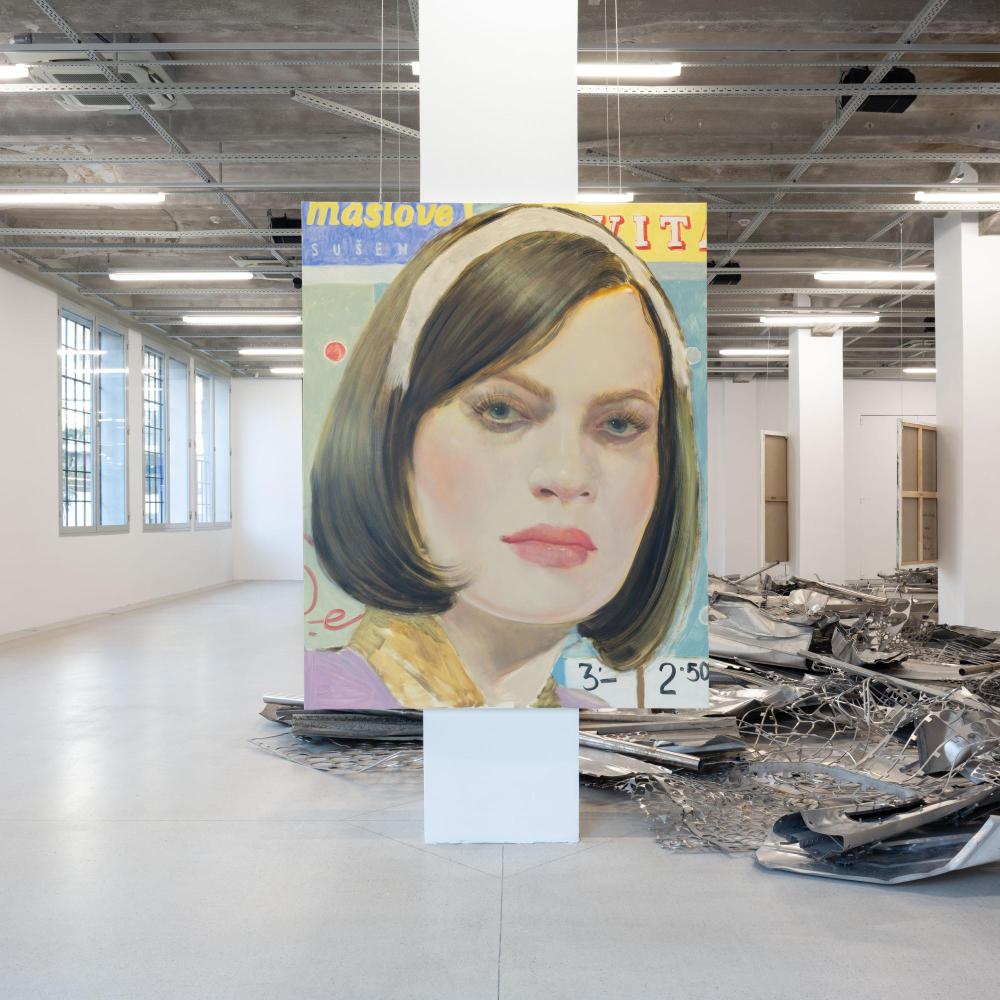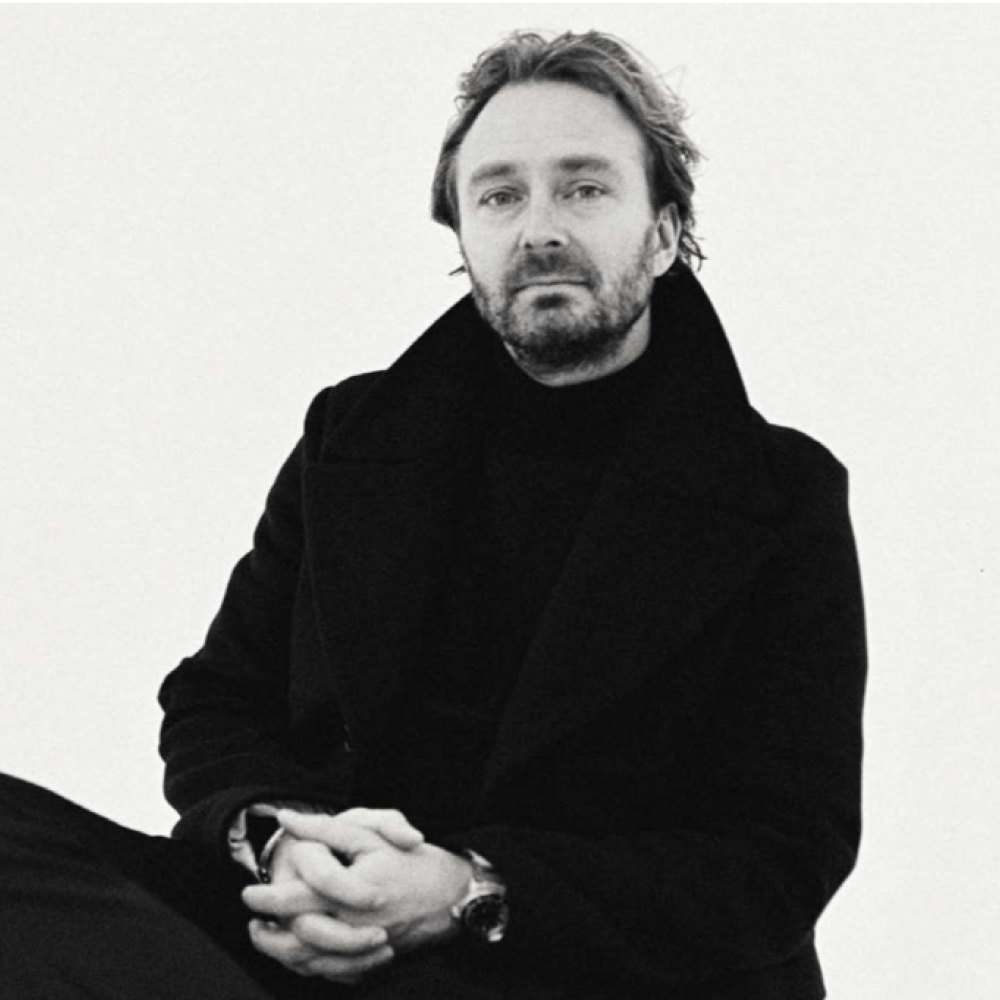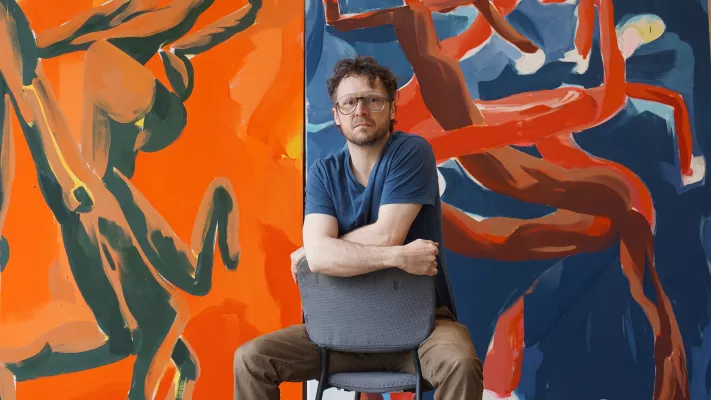
David Pešat (*1980) graduated from the Academy of Fine Arts in Prague in Painting Studio 1 under Prof. Jiří Sopko. During his studies he also completed internships in Spain and Finland. His painting work follows the modernist conception of the painting in the transformation of its composition and formal expression. The artist reacts to this starting point in his own way, reassessing, destroying and transforming it. He sensitively perceives the framework of experience that modern art has gone through to create the conditions for a free creative treatment of visuality itself. Pešat perceives visuality as a "raw material", a material to be transformed and processed.
In high school, you studied engineering. What eventually led you to painting and what was your preparation for the Academy of Fine Arts?
I actually had no formal training in art theory for a long time. The path of the artist was primarily a natural and intuitive path for me, but it certainly didn't lead through any theory. I've always been more of an artist-practitioner. The compulsive need to draw is the cornerstone of the path for me, and in fact the only path in general. So I went about it this way - the compulsive need way. I realized that no one was going to teach me that anyway. It either is or it isn't. Of course, I only found that out in retrospect, so after graduation I spent a rather intense 4 years preparing and attending the Folk Art School in Prague's Smichov district. It was a piece of luck, because there were wonderful people teaching there, beloved by all the students - Vlastimil Šik, Karel Matějček or Helena Horálková - and there I got my first initiation. In retrospect, I would say that nothing more important happened for a long time. What is first is experienced intensely and sincerely, and what is sincere is also eternal. I remember it with gratitude. It was terribly nice that back then there was no strict time limitation of "from when to when" to work, so I understood it to mean that one should work and paint constantly, intensely and passionately. And I wouldn't change that, even after all these years.
At AVU you went through the painting studio of professor Jiří Sopko. How did your time under Sopko's tutelage direct your artistic expression?
I actually applied to the studio of the then outgoing Antonín Střížek. I didn't know that, of course. Nor did I know that Michael Rittstein was going to come after him. Well, he probably didn't want me, because in the end I got a letter saying "you have been accepted into the painting studio of I. Jiří Sopko". Even after all these years I still see it in front of me - in bold letters ADMITTED. Just for the record, I also saw twice in bold letters the word NOT ADMITTED. AVU works in such a way that what some people don't want, others may like, and that's how Jirka Sopko took me in. I've been idealizing it this way for years, and it would probably be interesting to find out the true motivation behind his decision. To be honest, I've never been brave enough to ask him directly, but I have a hunch. For me, being at AVU was like a dream, and like all such dreams, mine had its sobering moments. It sounds like a nice fairy tale, but I didn't want to sober up too much in those six years, and I saw it as my duty to repay the school by reliving everything connected with it. And so I painted and enjoyed it. David Černý wrote somewhere that they were such "wasted years"... I think it can also be understood in a broader sense as a time that can be erased but not forgotten. That it somehow stays in the genetic makeup of the artist and only shows up years later.
You move between figuration and abstraction, and the themes you work with are very broad. Which ones do you create most often? Are you more comfortable with the abstract position for some subjects and the more figurative one for others?
I feel that for a long time, as far as themes go, I've kind of suffered from what our times bring as well. Fragmentation and too much noise. Everyone is sort of expressing themselves fully and loudly, on everything, for everyone, with as much effort as possible. Maybe that's why I went on such a visual diet for my thesis and did the whole thing in just three colours, and I would still put those colours in brackets, because black, white and beige are hard to classify as colours in good conscience. It was certainly my most abstract period. A year after school I continued with it, one could even say that it was quite commercially successful (I was bought by a major Prague gallery). Then, what the hell, my nerves snapped and I went back to my expressive colour position. I had the feeling at the time that I wasn't honest enough with myself and that I just didn't have the humanity for it yet. I think of so much reduction and abstraction. Professionally, it was a complete disaster. I lived another six years that I could write off with gusto. I started looking for myself, I wanted something big and strong for myself, but also life and the practical needs were catching up with me. I taught school for years, but that didn't accelerate the development. Quite the opposite. I know now, and I kind of knew then, that everything has its time. I'm glad I stuck it out, and I think I have something extra for myself because of it. Some kind of certainty that I was already lost and that the only way out of the woods is now... I remember I called one big painting The Forest is Burning, and I guess that's what it was. I was living in the circle of the burning forest at the time.
Otherwise, to answer your question, I feel like a figurationist with a love of all things abstract. One just can't get away from that.
Every detail is carefully thought out so that it works and has meaning on your canvas. You can say that you leave nothing to chance. Why is this meaning so important to you?
If I were to simplify, it's that what can be thought about, I think about, but then I let the work flow relatively freely. Of course, serendipity comes in. Nowadays I have an established process from drawing to the last layer on the canvas. Somewhere in the middle, I still do a lot of compositional rehearsals and use maybe a calculator and a ruler, protractor and other such nasty tools. I'm trying to synthesize everything I'm capable of, while at the same time getting more and more concentrated and simplified. I never know if this skeletal explanation is comprehensible to the viewer. For example, now I have a romantic cycle in my head, I can see it completely. I already have the drawings for it, then I'll make the lines with a ruler, but the process and the painting is crucial.
Do you have favourite artists who are interesting to you because of their work or life story?
Actually, every artist is interesting to me. He has a story and that story is always actually moving in some way. But not to get out of your way, I would divide it into those who are living and those who are no longer directly physically here. They sort of stand in a line from Giotto to Rembrandt to Rothko to Guston. They're like an imaginary family for me. Everyone can help me with something if I turn to them for advice. In fact, they're still alive for me. And then there are the (really) living ones. And they're a bit of a problem, because that changes. Nowadays, you watch that digital clock, and you can't really hold it all at once... So for example Salman Toor, Zsófia Keresztes, Louise Bonnet, Xiaogang but also others and others. I have to admit that I like the outsiders the best, like Vincent van Gogh, Chaïm Soutine, Wols, Jan Křížek, Bohuslav Reynek. There I feel some human feedback. Maybe it just echoes my romantic self.
Have you ever thought about going down a different artistic path and experimenting with sculpture or video etc.?
The most important thing is painting, the medium of painting and everything related to that. Drawing, printmaking, etc. The rest I see as a kind of experiment, steps aside. Just so I can come back again. So yes, I have some sculptures and photographs, but I keep those, sort of, to myself. It's not something I want to share right away. Actually, if I were to be a bit snarky, I think it's a modern-day vice. Everybody is a sculptor, painter, poet, curator, architect and set designer, etc. I'm not saying it's not possible, but it's rather nitpicking and a bit of an obligation to write it and actually do it.
Between 2004 and 2006 you also did two foreign sojourns, first in Spain and then in Finland. What made you choose such different countries? How did these stays differ? And did they have anything in common?
When you're in school and you have those programs there, of course you want the best. Well, then there are the destinations that you bid on. I take it with a grain of salt because the main thing was that the professor allowed it and actually gave me a little push, so I went. Both internships were essential and I wouldn't be what I am without them. Spain you can probably imagine. I had a terrible time and it was such a truly bohemian time. I was drawing a lot, soaking up the people and their lifestyle. Finland was such a cold shower, of course. You can't step into the same river twice, but I learned my lesson. Somehow it broke me there and I knew something that I carry with me to this day. I guess it's that awareness of nothingness and greatness at the same time, and that you have to do a little (a lot) to achieve that greatness too. They were different and everything was backwards. In fact, I don't remember anything even being similar - snow-sun, celebrations-introverts, work, food, everything was different, but it was nice.
You're currently doing a residency here at the Telegraph. How do you rate your stay and work in this environment?
For me, working here in Olomouc at the Telegraph is like going back to a time when I had a sea of time for everything. The difference is that then I wasted that time and today I'm dealing with every hour. I can concentrate and repaint what I've bought over the past few months. Of course, in the end, I don't even get half of it done. I think that's a theme of the times too though. There are just too many ideas for one person and one life... I guess someone will have to finish it for me... probably AI. Having taught for some twelve years and split my work between high school and studio, I see a residency like this as a kind of satisfaction for those years in school. No one can or should sit in two chairs. It looks like it can be done, but the result is still half as good no matter how you spin it. So I hope this shows that I rate my stay here extremely positively and give it 10 out of 10.
Did you have a plan in advance of what you wanted to create here, or did you let it run free?
I have a plan, obviously. I've prepared everything carefully, sketched it out, calculated it, and now... now I'm experiencing the change, the adventure. That's the free flow, but I think the basic stuff is still there, I hope... the person :)
